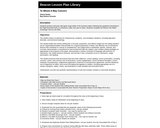
In this lesson, students draft and revise business letters.
- Subject:
- English Language Arts
- Material Type:
- Lesson Plan
- Provider:
- Beacon Learning Center
- Author:
- Beacon Learning Center
- Date Added:
- 04/23/2019

In this lesson, students draft and revise business letters.
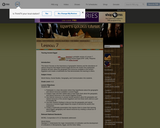
This lesson focuses on the importance of geographic features and the abundance of natural resources that helped ancient Egypt become the world's first superpower. Students will learn about the geography and resources available to the ancient Egyptians and create a multimedia tour that demonstrates this learning to others.
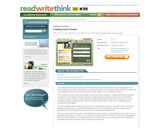
This interactive resource may be used by students to analyze real individuals or fiction-based characters. The application includes appropriate space to add an image and specific descriptive details.
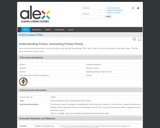
This lesson is part of a larger unit dealing with Early American Literature. In this lesson, students will become familiar with the figurative devices and strategies used by 17th century Puritan poets when creating closed or fixed form poetry.
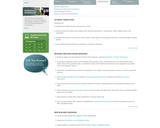
A series of lessons to introduce students to writing a mutigenre paper. Students will analyze and identify literary elements present in selected novels, work in collaborative groups and sythesize various genres to publish a multigenre webpage.

In this unit plan centered on the poem, "A Far Cry from Africa," students will identify key details in the poem, work with a partner to analyze and understand the poem's meaning, and then work online to answer additional questions about the poem.
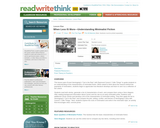
This lesson pairs Ernest Hemingway's "Cat in the Rain" with Raymond Carver's "Little Things" to guide students to an understanding of the characteristics of minimalist fiction. When asked to think about the reasons behind the popularity of minimalism, students begin to appreciate how literature develops and learn to see it as a reflection of the culture. Afterwards, students are tasked with comparing both works using a Venn diagram. Next, students read additional Carver stories to develop a list of characteristics for minimalist writing. Finally, students explore the roots of minimalism and write using characteristics of the style.
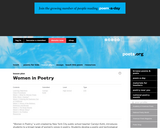
In this six week unit on Women in Poetry, students will be introduced to a broad range of women's voices in poetry. Each week is focused on a theme, and the lesson s surrounding that theme require students to research online, forming their own creative and critical responses. The guiding focus of the unit is "how does poetry by women belie and reinforce cultural stereotypes?"
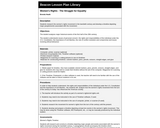
In this lesson, students research the women's rights movement in the twentieth century and develop a timeline depicting major people/events associated with the movement.

In this lesson plan, students will explore the difference between an emotional response and a logical appeal, utilizing three different handouts in order to create their own organized response to a piece of nonfiction.
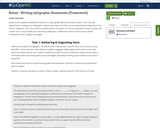
Students will complete independent research on a topic (preferably one they have chosen). Then, they will represent their findings in an infographic. Students will need to cite their sources and justify the design (structure) of their infographic. This remix removes content-specific information so it can be used with a variety of grades and content areas. It also includes tech and literacy integration. Collaboration with the School Library Media Coordinator (SLMC) is highly encouraged.
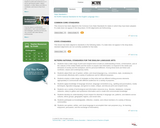
In this lesson students will learn to write and analyze technical writing instructiuons with consideration to audience, purpose, context, length, and complexity using common household items. After writing their own instructions, students will conduct usability tests of each other’s instructions, providing user feedback. Finally, students use this user feedback to revise their instructions before publishing them.
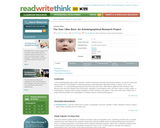
In this lesson, students will conduct interviews of friends and family members, as well as online and library research on what was happening internationally, nationally, locally, in sports, music, arts, commercial, TV, and publishing during the year that they were born. After they've gathered their research, they discuss how they will organize their information, typically in chronological order, and then create a rough outline. Students will then work in small groups to give feedback on their research and outlines. They then refine their outline into a paper that they publish as a newspaper or booklet using an online publishing tool.
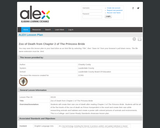
In this lesson, students will create their own zoo of death after reading Chapter 2 of The Princess Bride. Students will list all of the five levels of the zoo of death as Prince Humperdink in the novel and create their own while researching animals and habitats and create poster with colored pictures of animals and environments.